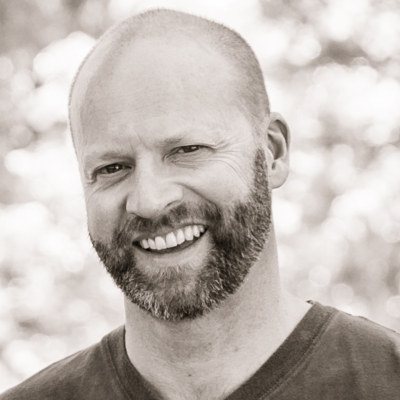This episode is a wealth of information. It is delivered by the expert guidance of guest Dr. Sheila Addison and covers many important elements of transgender and cisgender relationships, the transgender community in general, post-surgery sex, sex between cisgender and transgender partners, how identities are designated at birth, the psychology and complexities of gender identity, and that’s just the tip of the iceberg!
Dr. Sheila has a PhD in Marriage and Family Therapy. She has a private practice where her client base is about as diverse as it gets, ranging from LBGTQ to Poly Friendly and more. She has an amazing mind and qualified to boot, and her message is absolutely, overwhelmingly important when considering the challenges that the transgender community face and what cisgender people can do to help!
Transgender Versus Cisgender
To start, Dr. Sheila reminds listeners that we have all been designated as a ‘boy’ or ‘girl’ at birth. This excludes a small number of people who are born as “intersex”, which means their genitals are ambiguous and thus difficult to determine definitively (Gender isn’t binary in any sense – whether you’re talking about genitals or chromosomes; maybe another episode on this later). But for the majority of people, the gender they are assigned at birth fits with their gender identity as they develop throughout life. If you fall into the category, you are cisgender. The ‘cis’ prefix corresponds to mean ‘same’.
On the other end of the spectrum, if you haven’t positively identified with the gender that was assigned to you at birth, you are transgender.
For those who are born without a clear designation of male or female, the gender identity process can be much more complex than the binary ‘boy or girl’ designations that normally occur at birth. Dr. Sheila eloquently explains the nuances during the talk. Listen in!
The Importance of Furthering Education on Gender Identity
Dr. Sheila stresses the importance of seeing cisgender and transgender as identities and not conditions. As the nomenclature has shifted and the identities have garnered more societal understanding, Sheila still wishes we that we all had more comprehensive learning opportunities for the cisgender/transgender relationship dynamic and everything the identity entails.
Sheila states that an important place to start is being educated enough on the topic to know which questions to ask. And because it’s inevitable that transgender and cisgender individuals will become romantically and sexually involved, the sooner efforts are taken for a balanced understanding, the better.
On a Cisgender and Transgender Relationship
Providing comfort for a transgender individual is an important role for a cisgender person. This means that the cisgender person is not trying to process the challenges of being transgender so much, but just communicating and giving comfort. She talks about the importance of getting the guidance of a good couple’s therapist–one who can spearhead and direct the processing of certain emotions and feelings.
In addition to this very important component, Sheila also devotes some time to discuss the importance of the social aspect of gender identity. She also talks about making sure you understand what your transgender partner is envisioning when they talk about transitioning, and so forth. Really, really important information within.
Transgender Surgery and Sexual Expectations
This is a rich part of the interview. There’s a lot of ground that is covered and listening along is a must. But to summarize a few important elements: communicating about physical expectations after surgery is very important for sex. There are many variations and options for each individual, so having discussions about expectations is crucial.
And because genitalia will function the same after surgery, during a transition from cisgender to transgender, the individual going through that transformation needs support first and foremost.
Sit with Your Ambiguity
Dr. Sheila encourages you to be more curious in your attraction – mot to make a huge statement, but to lessen our societal tendency to limit our own desires and attractions. So often we get in our own way when it comes to sexual attraction and openness; Sheila encourages you to ‘be a scientist’. This means to keep an open mind despite current societal pressures to do the opposite.
Taking a Stand for Transgender People
One of the most important things for a cisgender person to do for their transgender partner is to take a stand for them. This means being actively involved in making society more welcoming and comfortable for transgender people. Having that social presence is a positive reinforcement for transgender partners and should not be taken lightly!
Key Links for Dr. Sheila:
(Affiliate links for Books that Sheila references):
The Trans Partner Handbook https://amzn.to/2UvzE9t
The Reflective Workbook for Partners of Transgender People https://amzn.to/2XtEgPc
Trans/Love https://amzn.to/2IKCrJq
Queer Sex https://amzn.to/2GzC7vU
Fucking Trans Women https://amzn.to/2XoNJHm
Her Website: https://drsheilaaddison.com/
Sheila’s Twitter: https://twitter.com/drsaddison?lang=en
Her LinkedIn Page: https://www.linkedin.com/in/sheilaaddison/
Sheila’s Facebook Page: https://www.facebook.com/sheilaaddisonmft
—–
More info:
Book and New Course – https://sexwithoutstress.com
Web – https://www.bettersexpodcast.com/
Sex Health Quiz – http://sexhealthquiz.com/
If you’re enjoying the podcast and want to be a part of making sure it continues in the future, consider being a patron. With a small monthly pledge, you can support the costs of putting this show together. For as little as $2 per month, you can get advance access to each episode. For just a bit more, you will receive an advance copy of a chapter of my new book. And for $10 per month, you get all that plus an invitation to an online Q&A chat with me once a quarter. Learn more at https://www.patreon.com/bettersexpodcast
Better Sex with Jessa Zimmerman




